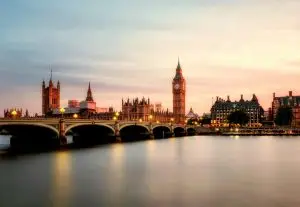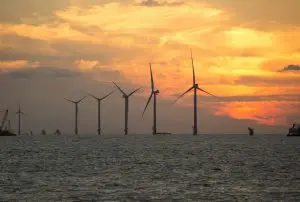Brevia Consulting is providing a weekly round-up and analysis of the UK headlines. This week, read about the market’s reaction to the Government ‘mini-budget’ announcement, Labour’s plans for a publicly owned energy company, and the Labour Party’s significant lead in the polls over the Conservative Party.
MARKETS IN SHOCK FOLLOWING MINI-BUDGET ANNOUNCEMENT
The Chancellor of the Exchequer Kwasi Kwarteng MP faced criticism this week in the aftermath of his ‘mini-budget’. The Government’s Growth Plan committed to abolishing the top 45 per cent tax band, reversing the National Insurance rise, and cutting the basic rate of income tax to 19 per cent in April 2023.[1] This triggered a crash in the pound to a 37-year low of $1.03, and a crisis in the UK gilt market. On Wednesday, the Bank of England announced it would ‘carry out temporary purchases of long-dated UK government bonds’ in order to ‘restore orderly market conditions’.[2] This news came the same day that the IMF urged the UK Government to re-evaluate its planned tax cuts, which the IMF argued are working at cross purposes to the country’s monetary policy.[3] In an effort to calm the market, the Chancellor has confirmed he will deliver a full fiscal plan on 23 November.
LABOUR UNVEILS PLAN FOR GREAT BRITISH ENERGY
The Labour leader Sir Keir Starmer MP used his keynote speech at the party conference to unveil plans for a new publicly owned renewable generation company, Great British Energy, within the first year of a Labour government. The company would be funded through the planned £8.3 billion new Sovereign Wealth Fund, announced by the Shadow Chancellor Rachel Reeves MP on Monday, and would deliver ‘British power to the British people’.[4] The new company would have a role in providing additional capacity and work alongside the private sector to encourage investment in clean energy to make the UK a ‘green growth superpower’.[5] Great British Energy would be independently operated, with profits reinvested. Sir Keir also confirmed the Labour party’s plan to deliver a net zero electricity system by 2030 – five years ahead of the government’s current 2035 target.
SHOCK POLL PUTS LABOUR 33 POINTS AHEAD
A YouGov poll commissioned by The Times has placed Labour 33 points ahead of the Conservatives.[6] The poll has Labour on 54% of the vote, with the Conservatives on 21%. This is believed to be the largest lead for Labour in any recorded poll since 1998.[7] Other polls, from Survation and Deltapoll, put Labour on a 21 point and 19 point lead respectively. These figures have delighted Labour supporters, after a positive Conference for the Labour leader, Keir Starmer, despite few new policies being announced. The polls have also shocked Tory MPs and supporters, with one MP saying they were ‘shell-shocked’.[8] Some Conservative backbenchers have already publicly criticised the Government for its position on fracking or the fiscal statement, and disastrous poll results will only increase the opposition the Prime Minister faces on her own benches.
BREVIA CONSULTING PROVIDES STRAIGHTFOWARD POLITICAL AND COMMUNICATIONS SUPPORT TO BUSINESSES AND ORGANISATIONS
Discover how Brevia can help you and your organisation by contacting the Brevia Energy Team on 020 7091 1650 or emailing us at contact@brevia.co.uk
Notes
[1] HM Treasury, ‘The Growth Plan 2022’, 23 September 2022, Link
[2] Bank of England, ‘Bank of England announces gilt market operation’, 28 September 2022, Link
[3] The Independent, ‘IMF urges UK to “re-evaluate” tax cuts on inflation concerns’, 28 September 2022, Link
[4] The Labour Party, ‘Keir Starmer Conference Speech’, 27 September 2022, Link
[5] The Labour Party, ‘Rachel Reeves Shadow Chancellor of the Exchequer Conference Speech’, 26 September 2022, Link
[6] YouGov, ‘Voting Intention: Con 21%, Lab 54% (28-29 Sep 2022)’, 29 September 2022, Link
[7] Sky News, ‘Labour surges to record lead in polls as Truss insists mini-budget did not cause economic turmoil’, 30 September 2022, Link
[8] Ibid.




